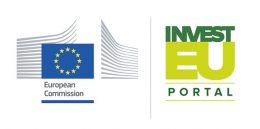In comparison to the last AHK poll in 2019, the sentiment of the major EU economy’s enterprises toward the Republic of Croatia has improved. According to the current poll by the German-Croatian Chamber of Industry (AHK), almost three quarters (74 per cent) of German investors would now invest in Croatia. Up from nearly half two years ago, when almost half were sure not to choose to invest in Croatia again.
The improvement from previous years (this traditional survey was not conducted last year due to corona) continues to lag the ratings of German business people from other Central and Eastern European countries surveyed. Resulting in 85 percent of German business people expressed a positive mood for re-selection. The improvement in business and investment evaluation is apparent in other nations. Two years ago, 79 percent of German business people (54 per cent in the Republic of Croatia) were prepared for new investment risk.

By the AHK CEO Thomas Sichlo, these results in the Croatian instance are better than expected. What is especially noteworthy in the AHK survey is evaluating the present situation and economic recovery under conditions influenced by the coronavirus pandemic. True, there are no significant changes in business forecasts compared to the 2019 poll in Croatia or other countries-50% anticipate the environment to remain constant from the previous year, 43% to improve, and 7% to deteriorate.
However, one-third of German companies polled said they had already returned to pre-pandemic levels, while 12 per cent expected to return by the end of this year. Thirty-eight per cent believed this would not be realistic in their case before 2022, 14 per cent only in 2023, and 2 per cent did not expect recovery at all. This year’s average annual AHK poll added a question on government initiatives to assist business people in mitigating the effects of the pandemic’s lockdown and disruption.
Government intervention “very satisfied” 6%, “satisfied” 23% and “average satisfied” 30%, while 10% were “very dissatisfied”, 11% were “dissatisfied” and 19% were “dissatisfied on average”. On average, therefore, there are slightly more of those with more or less positive reviews. The most significant weaknesses in the Croatian case are usually dominated in the AHK survey by corruption, an opacity of public procurement and legal uncertainty, which is now the case, with EU membership, quality skilled labour and productivity assessed as the most significant advantages.
AHK representatives also highlight the potential of introducing the euro and entering the Schengen area, according to which Croatia is doing well.
The optimistic point in the survey is that companies that rate the current economic situation negatively fell compared to 61% to 49% in 2019. And overall, companies are much more optimistic about their business situation compared to two years ago. The topic of the workforce is vital at the European level, and increasingly in Croatia, and the survey the majority confirmed that due to the lack of workers, they must refuse additional jobs, reduce planned investments, and among other things, wage costs are rising.
This is where SGS comes to the scene with a brand-new product– DaaS [Department as a Solution]. We deliver a tailor-made team based on the client’s needs. The clients decide who he wants to hire. At the same time, we facilitate the office, equipment and make sure he is completely integrated into the client’s organization, like a Workforce as a Solution.
You can read more about DaaS here.
Source: www.poslovni.hr









